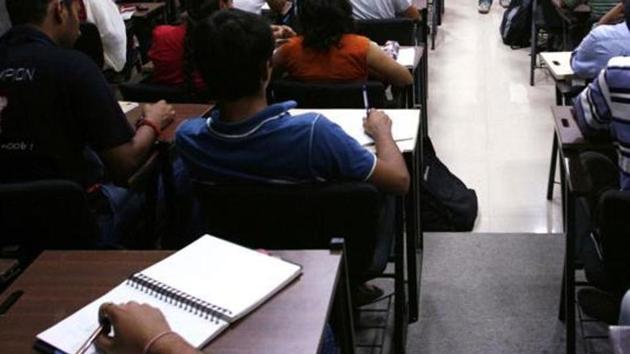4- year undergraduate programme: A much-needed change in the Indian education system
In the draft NEP, the panel also recommended an overhaul of the teacher education system to prepare them for the proposed 4-year UG programmes. This was long overdue and bodes well for elevating our present standards of education.
The new draft National Education Policy (NEP) released by the government earlier this year recommended a slew of impressive measures that aim to revolutionize the Indian education system, right from primary schooling to higher education. One such prominent proposal was the comeback of the four-year undergraduate (UG) courses, which was scrapped by a former HRD minister when introduced as FYUP in Delhi University.

In the draft NEP, the panel also recommended an overhaul of the teacher education system to prepare them for the proposed 4-year UG programmes. This was long overdue and bodes well for elevating our present standards of education.
The prospects of 4-years UG courses are plenty, but a major one is that these programmes bring Indian education on par with foreign universities. Several foreign universities in globally renowned educational hubs do not accept three-year degrees as an equivalent of an undergraduate course, and instead, demand a 4-year degree prior to applying for a Masters’ degree.
If the 4-year UG courses get implemented, those willing to pursue higher studies abroad will no longer be forced to enrol in a one-year diploma. Further, the draft NEP adds a touch of flexibility in UG courses, proposing that both three-and four-year courses will be allowed to co-exist with multiple exit and entry options may be provided.
Another strong advantage that the four-year UG programmes will have is the focus on research. According to the draft, institutions could award degrees “with Research,” if the student manages to complete a research project as specified by the Higher Education Institute (HEI).
Further, UG programmes with four years’ duration will allow students to get a broader perspective as he/she study a bit of everything in the initial year and then focus on one particular discipline.
Expectedly, these programmes will make room for an optimal blend of fieldwork, classroom sessions, and discussions as well as internships which provide industry exposure, which is largely lacked by the graduate population in India. The move could, thus, enhance employability and skill building.
However, despite the obvious prospects that 4-year programmes offer, the courses also come with some challenges:
Not enough guidance and research opportunities are available at our universities, neither has the approach, so far, been pro-research. There is a definite lack of research facilities in several affiliated and autonomous colleges, for which funds need to be allocated by the UGC.
Further, most programmes focus on theoretical knowledge with obsolete syllabi. Scoring well in memory-based exams and tests is rewarded more than referencing and coming up with one’s original theses.
Hence, to revamp this extant system, a well-thought about change in curricula as well as the attitude of the mentors/teachers is much needed. The availability of resources at institutions is also an additional hurdle. This also refers to the time that professors may have for students pursuing research.
Research and specialization need to be encouraged by generating opportunities in the form of jobs or internships. One of the biggest factors that discourage research-oriented courses among students in India is perhaps the lack of rewards at the end of a rigorous research process. More institutes like IISC which offers Bachelor of Science (Research) should come forward with effective research-based courses to generate in-depth analysis and specialization opportunities for students.
Moreover, institutions are considerably inflexible regarding electives owing to shortage of faculty specializing in certain areas and/or are reluctant to invest in hiring domain experts.
The cost of graduation may also increase owing to a higher number of terms/semesters that the students will need to take as well as the expenses for upgrading the infrastructure required for more a holistic learning approach.
To conclude, for Indian education to be valued and recognized the world over, the four-year UG programme proposal could be the missing secret ingredient if done right. Making thoughtful additions, such as research facilities and electives, to UG programmes and not just semesters/terms could bring us at par with educational institutions of global eminence.
It is albeit a long road. At this juncture, only a well-chiselled roadmap and not just wishful thinking can take us there.
(The author Chief Business Officer, Shiksha.com and Naukri FastForward)
Discover the complete story of India's general elections on our exclusive Elections Product! Access all the content absolutely free on the HT App. Download now!
Get latest news on Education, along with Board Exam, Competitive Exam and Exam Result at Hindustan Times. Also get latest Job updates on Employment News









